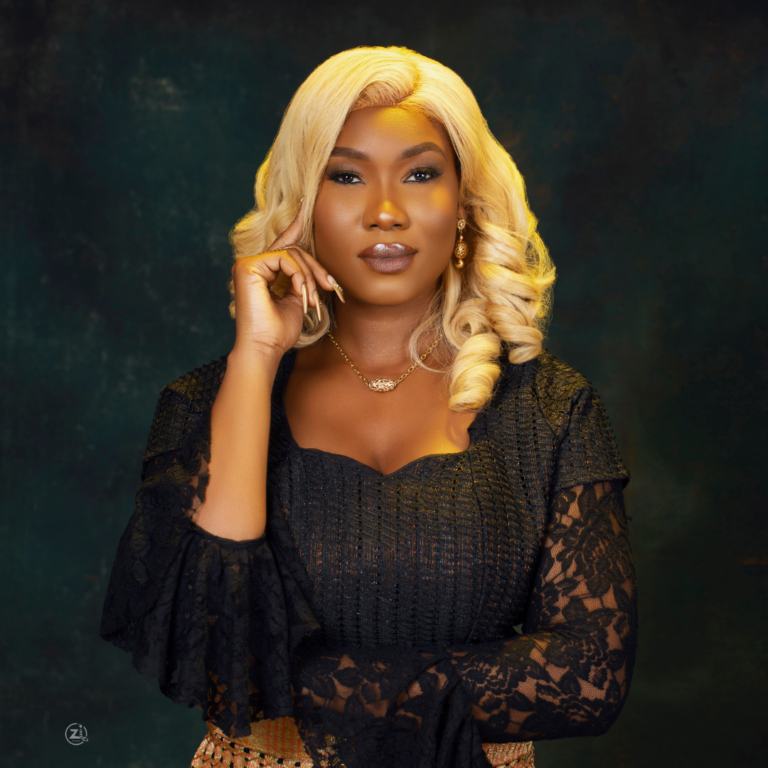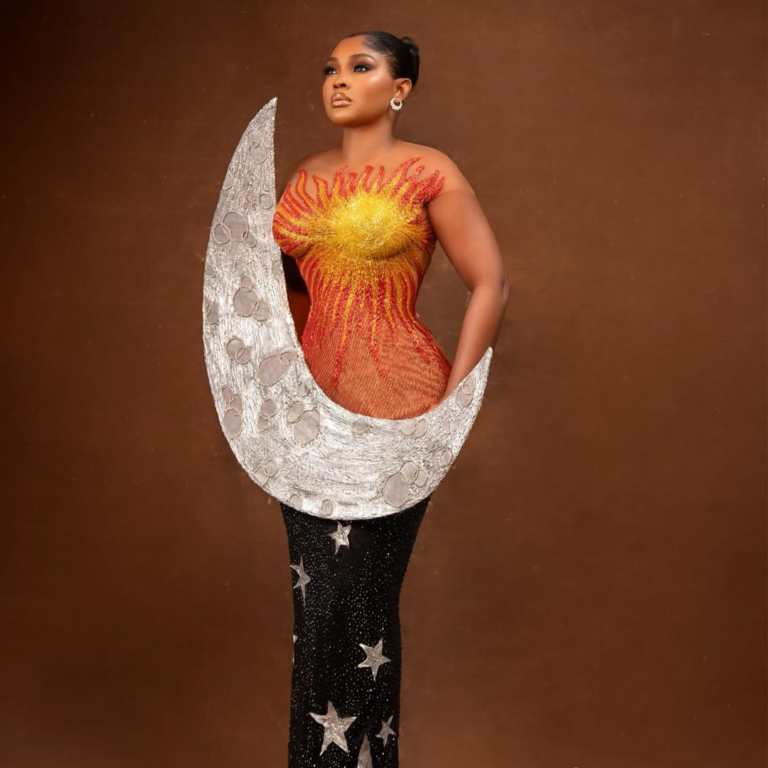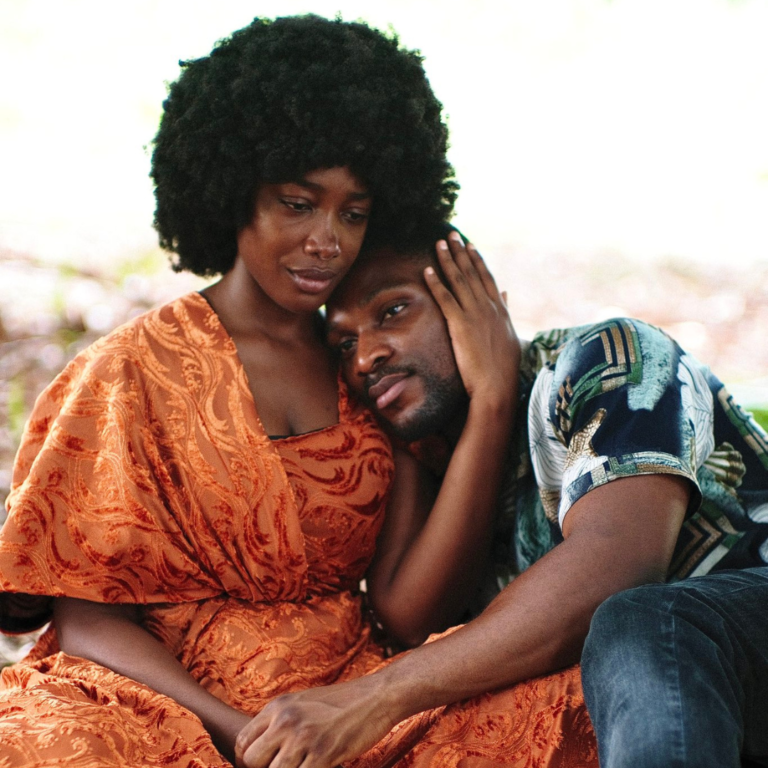Jade Osiberu’s latest Prime Video original, Christmas in Lagos, explores love, friendship, and self-discovery against a backdrop of opulence and Lagosian flair. The film follows Fiyin (Teniola Aladese), a young woman grappling with unrequited love for her best friend Elo (Shalom C. Obiago), who has returned from the U.S. to propose to his girlfriend, Yagazie (Angel Anosike). In her pursuit of Elo’s affection, Fiyin tests their friendship and the very foundation of Elo and Yagazie’s relationship. Meanwhile, a parallel romantic subplot unfolds as Toye (Wale Ojo) and Chief Dozie (Richard Mofe-Damijo) vie for Gbemi’s (Shaffy Bello) hand in marriage.
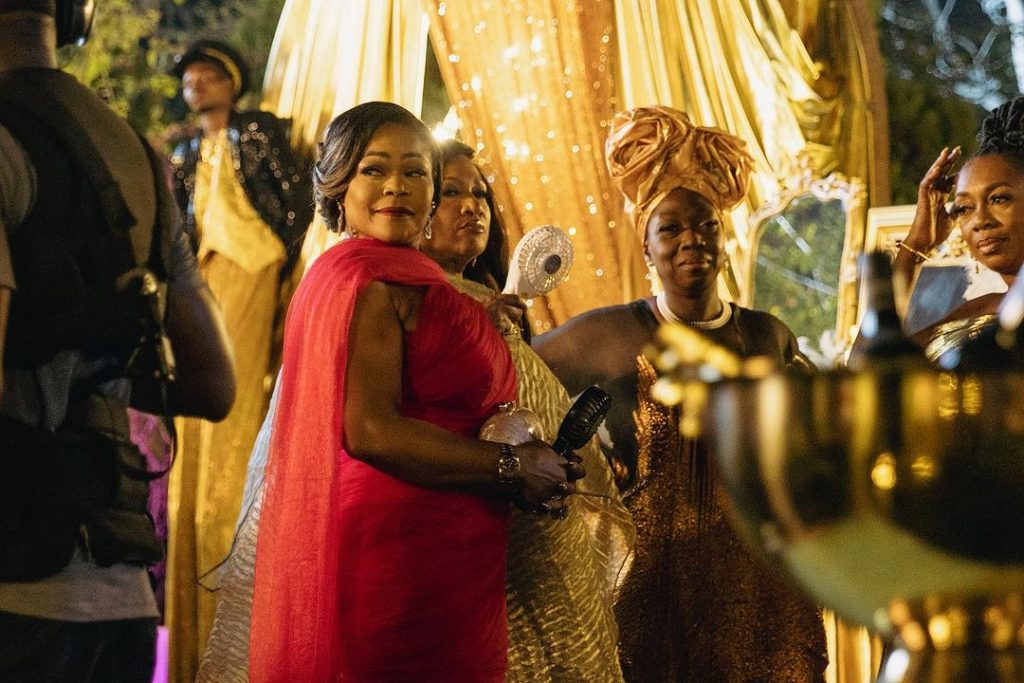
Osiberu takes a break from critiquing the systemic inequalities that define modern Lagos (as seen in Gangs of Lagos) to reimagine the city as a fantastical haven. Lagos is portrayed with stunning visuals—sprawling mansions, lush gardens, and traffic-defying luxury cars. Costume design by Dahmola heightens the fantasy, with characters dressed to impress, from Ajani’s (Ladipoe) rugged charm to Ladi’s (Tris Udeh) stylish, self-made wardrobe. Yet, this romanticized Lagos leaves little room for the gritty realities of the city. Those seeking a raw depiction of the world’s poverty capital may find this film’s escapism unsettling.
Where Christmas in Lagos excels is in its nuanced take on the morality of “snatching” and the growing discourse around sugar-baby feminism. The film questions the transactional nature of modern relationships, challenging the notion that material gifts and financial stability are sufficient to win someone’s heart. For example, Gbemi, courted by both the wealthy Chief Dozie and the less affluent Toye, ultimately seeks something more genuine than the chief’s offerings. She will take her burnt dodo and piece of mind any day over expensive designer bags and sleepless nights.
Osiberu’s characters, particularly the women, refuse to conform to societal expectations. They value authenticity over materialism, a striking deviation from the tropes of sugar-baby feminism. “Signing up to be a sugar baby is not accepting a man’s sexualization. It is, fundamentally, a clever means for women to refute the same system that perpetuates catcalling, unwarranted, explicit private messages, and harassment by demanding payment,” a screed on the subject in the Harvard Crimson argues.
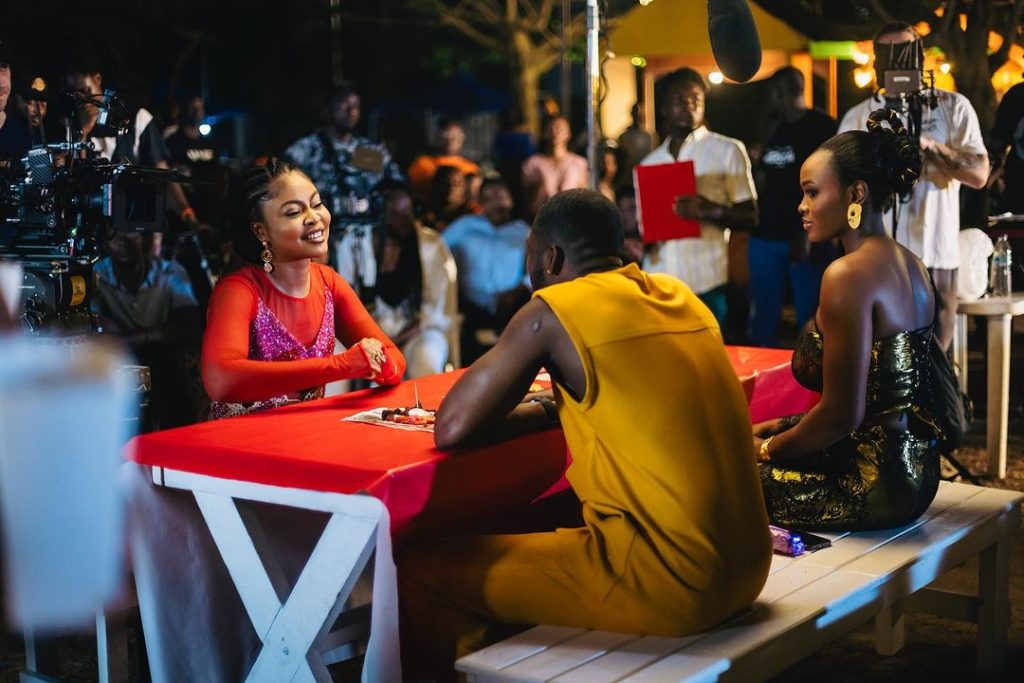
Gbemi’s choice to reject Dozie’s wealth is not framed as a rejection of privilege but as an assertion of agency. Similarly, Ajani’s insistence on staying true to himself, even picking up his love interest on an okada, underscores the film’s theme of self-acceptance.
“I think Ivie is used to a certain way of living, and something unfamiliar will intrigue her. Lagos can sometimes be high-end and very pretentious. But he said it as it is, and she appreciates that” Rayxia Ojo, who plays Ivie, the IJGB who rides with Ajani on their first date on an okada, told Zikoko.
It is the kind of experience that would have given fodder to the gender row for days on TikTok, with the man chided for not being rich enough but wanting to still go on a date, as if having money and finding a lover are mutually exclusive (or are they not?)
Playing Ajani, Ladipoe was very conscious of this. “I am a delivery guy. I am a guitarist, and I’m going to pick up my girl. I have my okada. Why won’t I take it?” he told Zikoko. “He knew who he was. People in Lagos probably should do more of that. That is why they are renting cars that they can’t afford. Try and be who you are.”
The film’s central love triangle is more complicated. “Sometimes with a number of people, you like someone, and there’s unrequited love, and that is Fiyin’s situation,” Teniola, who plays Fiyin, told Zikoko. “I understood where she was coming from. She thought she was in love with her best friend. She thought they were meant to be together because of their history. But that doesn’t always work.”
Angel Anosike, who portrays Yagazie, is more critical, calling Fiyin “delusional” but empathizing with her vulnerability. “I have a lot of empathy for her watching it. She was just confused. Emotions are very tricky. I won’t villainise her.”
In one pivotal moment, Fiyin kisses Elo, disrupting his engagement plans. While this act strains relationships, it also reveals Elo’s own flaws. Shalom C. Obiago reflects on Elo’s struggle to balance his relationships: “One of Elo’s flaws is his need to people-please. It’s what gets him into trouble and escalates the situation.”
Waje, who plays Caroline, Yagazie’s aunty, shifts the responsibility away from Fiyin’s overstepping to Elo’s own accountability in managing his relationships. “As long as she is your best friend, there is this other woman that you also have to assure that she is your everything. When you go out with Fiyin you invite Yagazie. You let her know you’re coming with a girlfriend that you intend to marry,” she said.
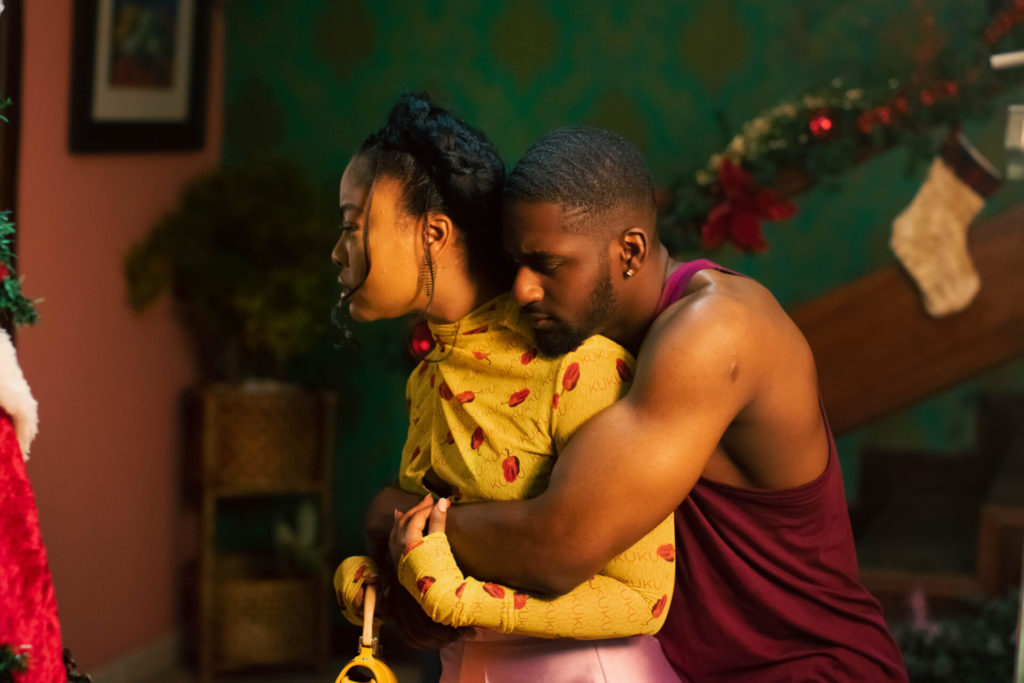
Despite its glossy visuals and escapist narrative, Christmas in Lagos engages deeply with themes of love, agency, and emotional authenticity. Jade Osiberu masterfully balances the fantasy with hard-hitting questions about human connections in a society obsessed with wealth and appearances. While not without its flaws, the film offers a refreshing take on romantic drama and Lagosian life, leaving audiences to ponder: Is love about what you give—or who you are?

